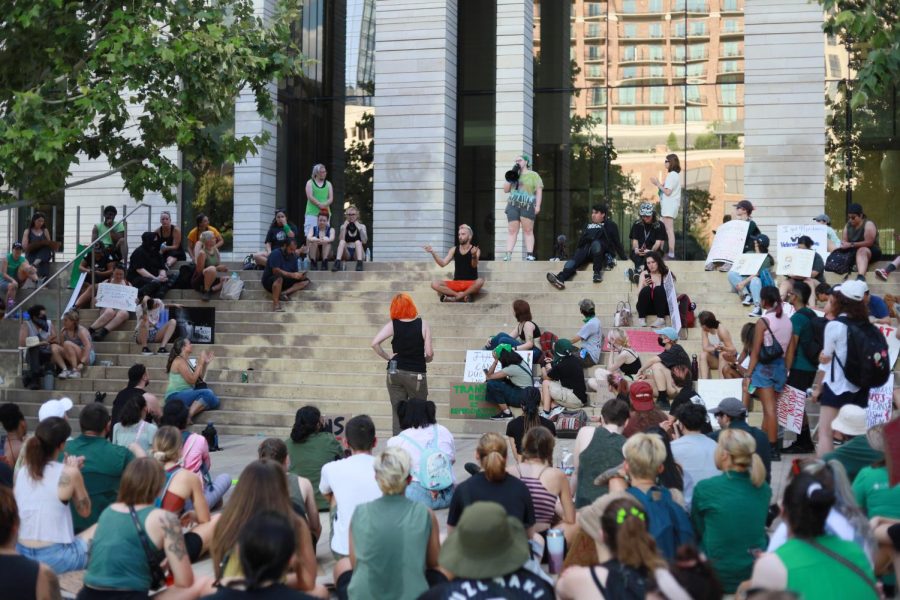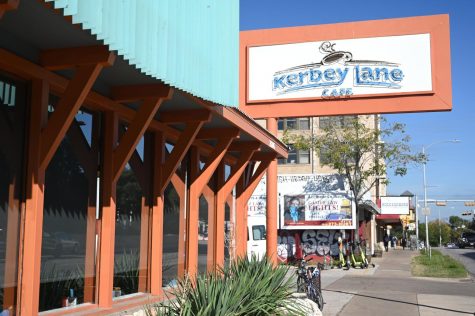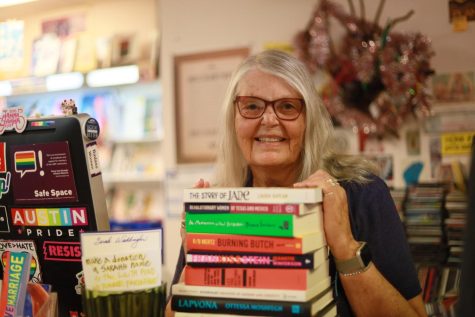Austinites gather at Capitol to protest on July Fourth
July 8, 2022
Protesters gather at the Texas Capitol gates, signs raised proudly above their heads. Passing cars honk and wave at the growing crowd, some showing support and others meeting the group with countering remarks. One protester lights an American flag, setting it ablaze and watching it burn to ash on the ground.
Pro-choice activists marched from the Texas Capitol to the United States Federal Courthouse on July 4, protesting the lack of freedoms and liberties many marginalized communties endure. Valerie Ferguson, an international relations and global studies senior, said the overturning of Roe v. Wade, a 1973 Supreme Court ruling protecting individual right to an abortion, was the central focus of the protest and said that sporting red, white and blue at a time where the freedoms of many marginalzed communities are being infringed upon felt inappropriate.
“People are describing this sense of helplessness right now,” Ferguson said. “All people can really do is go out every day and make their voice heard.”
Although the timeliness of Roe v. Wade’s overturning is what sparked the idea for the protest, Hays County resident and activist Francine Tatu said she and others came to protest other inequalities and tragedies in the United States. Tatu said the murder of 25-year-old Jayland Walker, who suffered at least 60 gunshots from police in Akron, Ohio brought her to the proest.
“Especially in the wake of Jayland Walker’s killing in Akron, Ohio — it’s really been distressing to me,” Tatu said. “There have been so many killings, (and) he was about the age of my son. This isn’t really the Fourth of July.”
Just a few days before July 4, Austin locals unaffiliated with any specific organization organized the march, according to Twitter. Despite the short notice, many people showed up at the Capitol gates — some having driven hours to be there — ready to embrace the organizers’ Independence Day message that was included on the flier for the event: “There’s no celebrating a country that doesn’t protect its citizens.”
“Actively having people celebrating the Fourth of July at the exact same time that (the march) was happening was a little bit discouraging,” Sarah Taylor, undeclared sophomore and attendee of the march, said. “With the idea of freedoms and liberty (in mind) — ideas the Fourth of July is supposed to encompass — (celebrating Independence Day) felt very staged … like it didn’t represent how I felt.”
Protesters took turns sharing stories of sexual abuse and dangerous pregnancy complications on the courthouse steps, some speakers screaming into the megaphone to vent anger and frustration. Others stood up to share words of encouragement and motivate community action, the youngest being a 10-year-old girl.
“Sharing such personal experiences from people that have been affected by (Roe v. Wade) provided a lot more perspective,” Taylor said. “It created something more tangible for my brain to hold on to and be like ‘Okay, this is why we’re fighting for our rights.’”
For many pro-choice protesters, marching for reproductive rights is not new, Tatu said. Many of the attendees of the July Fourth march also protested at the Texas Capitol after SB 8 was passed in Texas, which banned abortion after a heartbeat is detected, which can be as early as six weeks into pregnancy.
“It felt important to do something on (the Fourth of July) to show we aren’t all free in the United States,” Ferguson said. “It was really sad because we know that we will have to be out there again.”
While Tatu said she feels disillusioned by the sentiments of Independence Day, she remains hopeful that future demonstrations will continue to fight for more freedoms for the American people.
“I hope more people will step up,” Tatu said. “I know we’re all tired of marches, rallies and speeches, but it does show solidarity. We are seeds, and they can’t bury us.”









